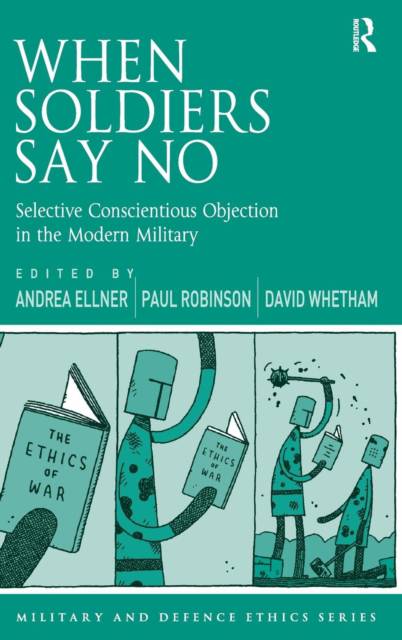
Je cadeautjes zeker op tijd in huis hebben voor de feestdagen? Kom langs in onze winkels en vind het perfecte geschenk!
- Afhalen na 1 uur in een winkel met voorraad
- Gratis thuislevering in België vanaf € 30
- Ruim aanbod met 7 miljoen producten
Je cadeautjes zeker op tijd in huis hebben voor de feestdagen? Kom langs in onze winkels en vind het perfecte geschenk!
- Afhalen na 1 uur in een winkel met voorraad
- Gratis thuislevering in België vanaf € 30
- Ruim aanbod met 7 miljoen producten
Zoeken
When Soldiers Say No
Selective Conscientious Objection in the Modern Military
€ 320,95
+ 641 punten
Omschrijving
Traditionally few people challenged the distinction between absolute and selective conscientious objection by those being asked to carry out military duties. The former is an objection to fighting all wars - a position generally respected and accommodated by democratic states, while the latter is an objection to a specific war or conflict - theoretically and practically a much harder idea to accept and embrace for military institutions. However, a decade of conflict not clearly aligned to vital national interests combined with recent acts of selective conscientious objection by members of the military have led some to reappraise the situation and argue that selective conscientious objection ought to be legally recognised and permitted. Political, social and philosophical factors lie behind this new interest which together mean that the time is ripe for a fresh and thorough evaluation of the topic. This book brings together arguments for and against selective conscientious objection, as well as case studies examining how different countries deal with those who claim the status of selective conscientious objectors. As such, it sheds new light on a topic of increasing importance to those concerned with military ethics and public policy, within military institutions, government, and academia.
Specificaties
Betrokkenen
- Uitgeverij:
Inhoud
- Aantal bladzijden:
- 290
- Taal:
- Engels
- Reeks:
Eigenschappen
- Productcode (EAN):
- 9781472412140
- Verschijningsdatum:
- 15/01/2014
- Uitvoering:
- Hardcover
- Formaat:
- Genaaid
- Afmetingen:
- 156 mm x 234 mm
- Gewicht:
- 585 g

Alleen bij Standaard Boekhandel
+ 641 punten op je klantenkaart van Standaard Boekhandel
Beoordelingen
We publiceren alleen reviews die voldoen aan de voorwaarden voor reviews. Bekijk onze voorwaarden voor reviews.








